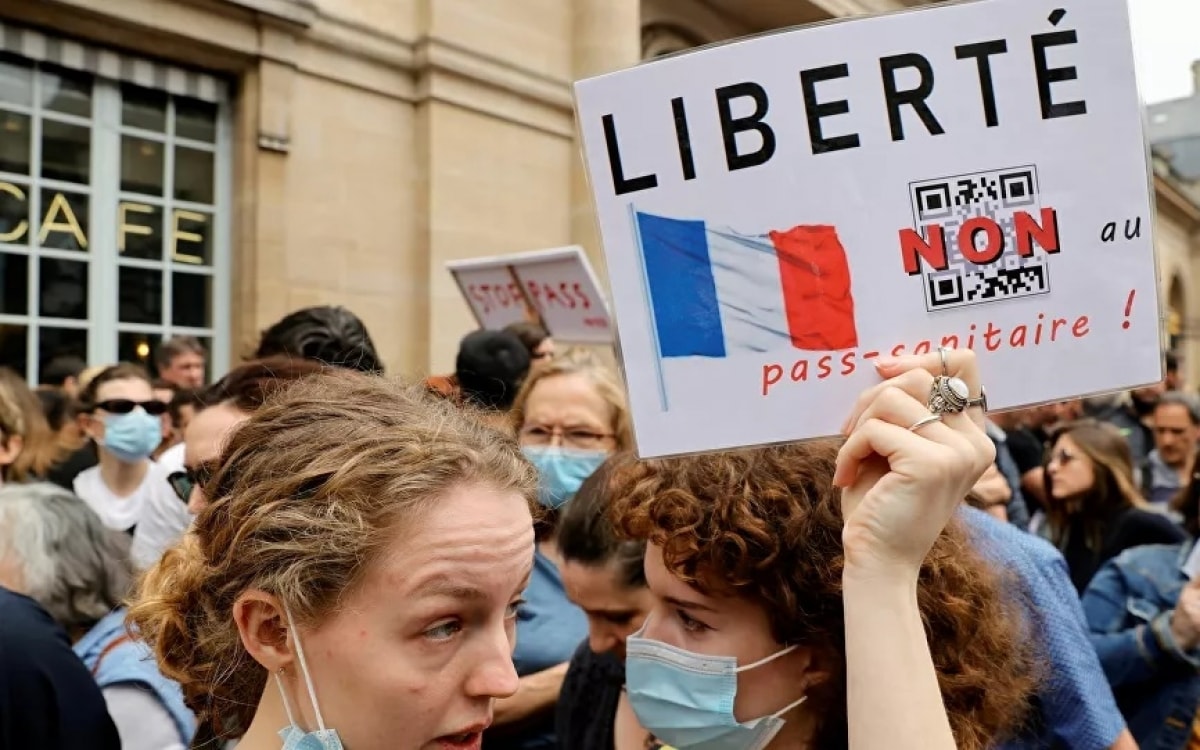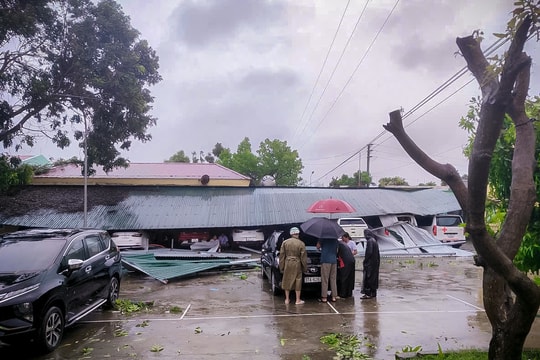Controversy continues on first day of France's health pass
Under the newly enacted health law, since August 9, regulations on health passes have been applied in restaurants, bars, shopping malls, train stations, and major ports across France and continue to cause many mixed opinions.
Four days after the French Constitutional Council approved a new health law, the expanded application of health passes officially came into effect in France on Monday, August 9. Under the new law, French people over 18 years old will have to present a health pass, either a paper version or a digital version with a QR code, certifying that they have been vaccinated against COVID-19 with two doses, or have tested negative for SARS-CoV-2 within 72 hours, or have a certificate of immunity after having contracted COVID-19, to be allowed to enter restaurants, bars, cultural establishments, large shopping centers or take long-distance flights and high-speed trains. Minors between 12 and 17 years old will have this regulation postponed until September 30, 2021.
 |
Having caused a lot of controversy and division in France for over a month, demonstrated through protests attracting hundreds of thousands of participants every weekend, the health pass continues to attract many opposing opinions on the first day of its implementation.
Although French police officials said they would be lenient in the early days of implementation and mainly only remind people and business owners instead of imposing fines, many people still believe that this regulation will lead to businesses having to refuse service to many customers during a difficult economic time. In addition, the fact that police in some localities require people to present their ID cards to compare with their health passes has also been criticized as being too rigid.
However, some French health experts are concerned that the French government's move to loosen controls on health pass regulations, especially the recognition of 72-hour testing, could render the regulation ineffective.
“From a medical point of view, this is not a good way, and we have to wait and see if it has any consequences, but to be honest, I am not happy because extending the testing period to 72 hours instead of just 48 hours will increase the risk, because within 3 days after the test, a person can be incubating and infected. The government wants to relax a little, but it must be understood that, from the beginning, PCR testing is relatively safe, but not absolutely safe,” said Robert Sebbag, an infectious disease specialist at the Pitíe-Salpêtrière hospital in Paris.
In addition to concerns that the health pass regulations will not be fully complied with, French authorities are also concerned about the risk of many people using fake health passes, which are currently being widely sold on social networks, through criminal networks linked to some pharmacies.
To limit this risk, the French Ministry of the Interior on August 9 issued a series of warnings about the fines for those who do not comply with the regulations as well as those who use fake health passes. Accordingly, those who are subject to inspection without a health pass will be fined 135 euros for the first violation, 1,500 euros for the second offense within 15 days and will be imprisoned for up to 6 months, along with a fine of 3,750 euros for the third violation.
The fines will be much higher for those using fake or other people's health passes, with the highest level penalty being up to 5 years in prison and a fine of 375,000 euros./.








